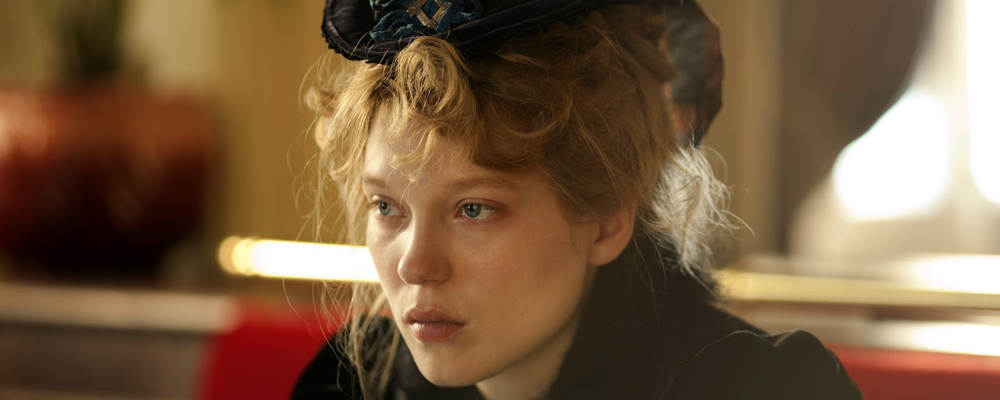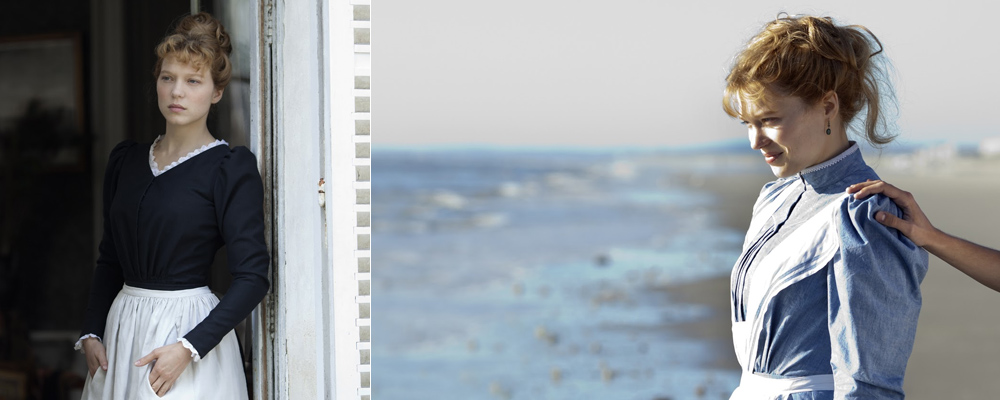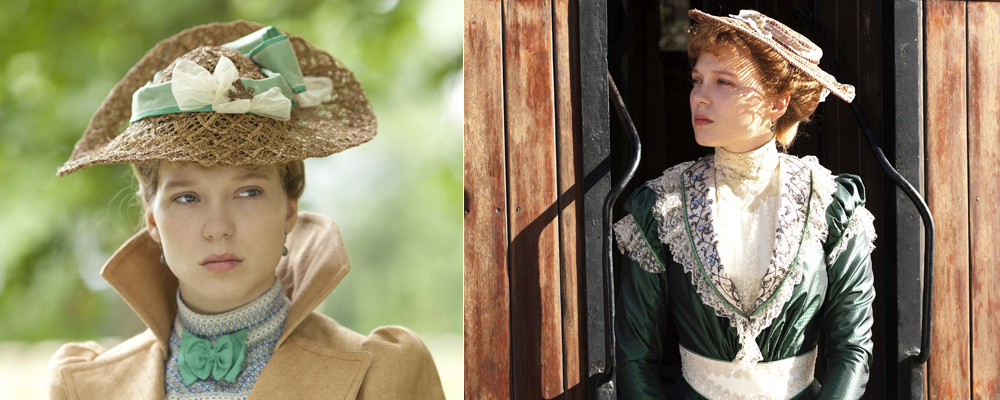Life of Clever Servant in Early 20th-Century France Chronicled in Fascinating ‘Diary of a Chambermaid’
Sandra Miska
The life of a young French maid in early 20th-century Paris and rural France is chronicled in “Diary of a Chambermaid,” a French-language drama, the third film adaptation of the 1900 novel of the same name by Octave Mirbeau. Léa Seydoux plays Célestine, a chambermaid who relocates from Paris to the French countryside for a new position in the household of the bourgeois Lanlaires, a middle-aged couple. Madame Lanlaire (Clotilde Mollet) takes a disliking to her new servant almost immediately, and Célestine, hardly Miss Congeniality to begin with, begrudgingly goes about her work mumbling sarcastic remarks (barely) under her breath.
Madame has her reasons for not getting the warm fuzzies for the young woman she brings under her roof. Her lecherous oaf of a husband (Hervé Pierre) has impregnated a succession of domestics and local women including one as young as 15, causing his wife not only humiliation but also financial loss. Although Célestine is past the first bloom of youth, as they would say back in the day, she is very beautiful and uses her years of experience to outmaneuver Monsieur Lanlaire. Marianne (Mélodie Valemberg), the affection-starved house cook who lacks her colleague’s beauty and wit, isn’t so lucky and serves as a reminder to Célestine that her life could be worse.
It’s not long before Célestine finds herself drawn to horse-buggy driver Joseph (Vincent Lindon), a middle-aged man who’s not one for small talk and when he does it’s usually to voice anti-semitic opinions. To her credit, Célestine believes people of all faiths can be equally horrid. Joseph is far from an ideal male specimen but there are slim pickings in the country. Her friend and fellow maid Rose (Rosette) is considered a success for becoming the companion of her employer, a sadistic man called Captain Mauger (Patrick d’Assumçao). Eventually, Joseph opens up to Célestine and confides in her his shady business ideas, and she is intrigued but the rape and murder of a local girl threaten their budding relationship.
Flashbacks reveal Célestine’s more colorful previous life living and working in and around Paris. There were lows such as being offered a job in a brothel. The high was living seaside in a beautiful house caring for a young man named Georges (Vincent Lacoste) stricken with tuberculosis, a job that ended in a memorable climax.
“Diary of a Chambermaid” reunites Seydoux and writer/director Benoît Jacquot who previously directed her in “Farewell, My Queen,” another film in which Seydoux played a servant. This time around, Seydoux’s role is that of an older and wiser woman who doesn’t allow herself to get attached to any one employer, realizing that it’s up to her to take care of herself. The closest Célestine has to a champion is Georges’ grandmother (Joséphine Derenne) but ultimately that relationship, like so many in her life, must come to an end.
At the end of the day, Célestine laments the limited opportunities for a woman of her class. “Diary of a Chambermaid” is an enjoyable film that paints a vivid portrait of life at the turn of the 20th century, even if the ending feels a bit abrupt.
“Diary of a Chambermaid” opens June 10 in Los Angeles and New York.



